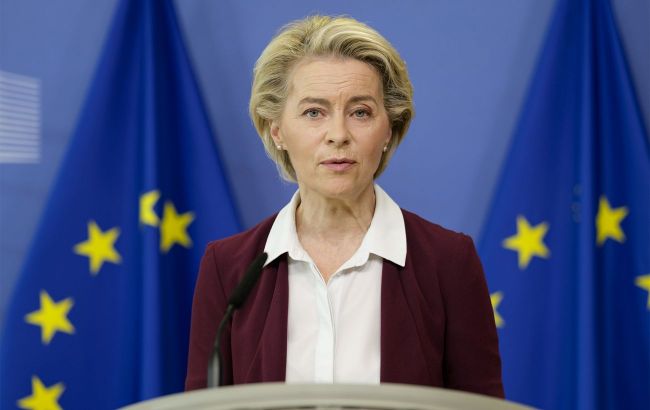EU discusses extension of sanctions against Russia to secure loan to Ukraine - FT
 Photo: European Commission President Ursula von der Leyen (Getty Images)
Photo: European Commission President Ursula von der Leyen (Getty Images)
In June, the leaders of the Group of Seven countries agreed on a $50bn loan to Ukraine secured by frozen Russian state assets. However, the process is moving slowly, the Financial Times reports.
Washington is demanding ironclad guarantees that Russian assets, most of which are frozen in the EU, will remain blocked until Russia pays reparations to circumvent the need for congressional approval for the funds.
Today, the European Commission will present options for extending sanctions against Russia for 36 months or indefinitely for discussion with EU ambassadors. However, the decision requires the consent of all 27 member states.
Hungary, in particular, may use this issue as leverage to influence the distribution of portfolios in the new European Commission board, which has caused difficulties in the past.
The EU has to approve the loan proposals by the end of the year, otherwise, Hungary could veto them. Time is limited, as the next tranche of the IMF loan to Ukraine also depends on receiving guarantees of sufficient funding to cover Ukraine's fiscal deficit.
Some EU officials believe that US fears of an extension of sanctions may be exaggerated, as sanctions have been in place since 2014 and have always been extended. However, Hungary remains a key player in this process, which complicates the situation.
$50 billion for Ukraine
In June, at the G7 summit, the leaders agreed to provide Ukraine with a $50 billion loan to be repaid from the proceeds of frozen Russian assets blocked by Western countries after the outbreak of the war.
The terms of the loan are currently being discussed, including the share of each G7 country in the general fund.
The issue of a loan to Ukraine was a key topic of talks between G7 ministers on the sidelines of the G20 summit in Brazil.

